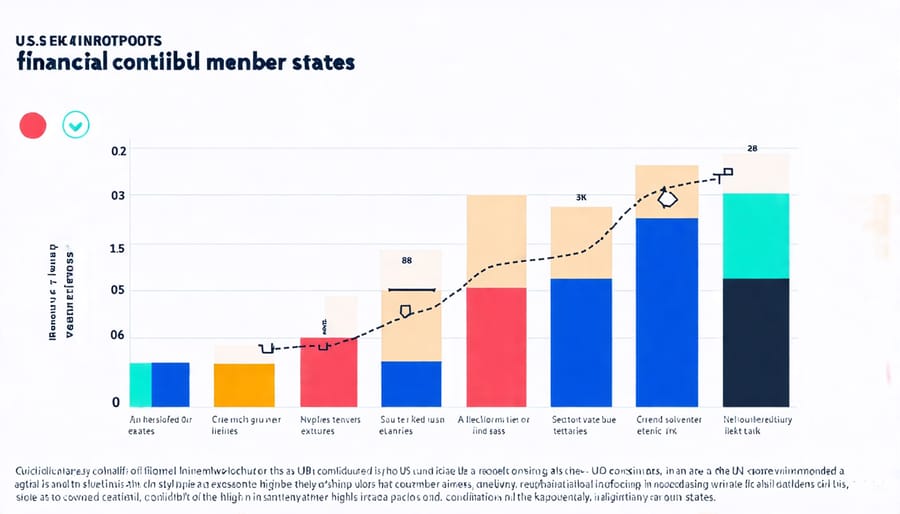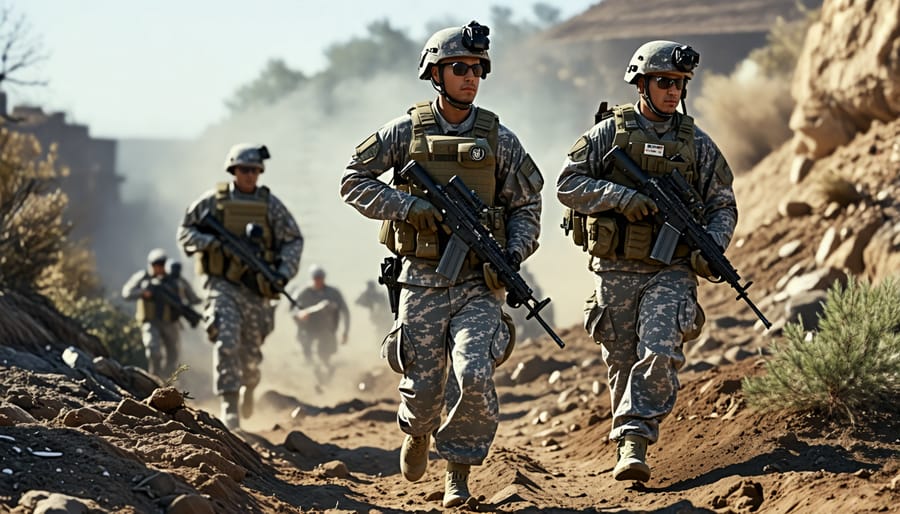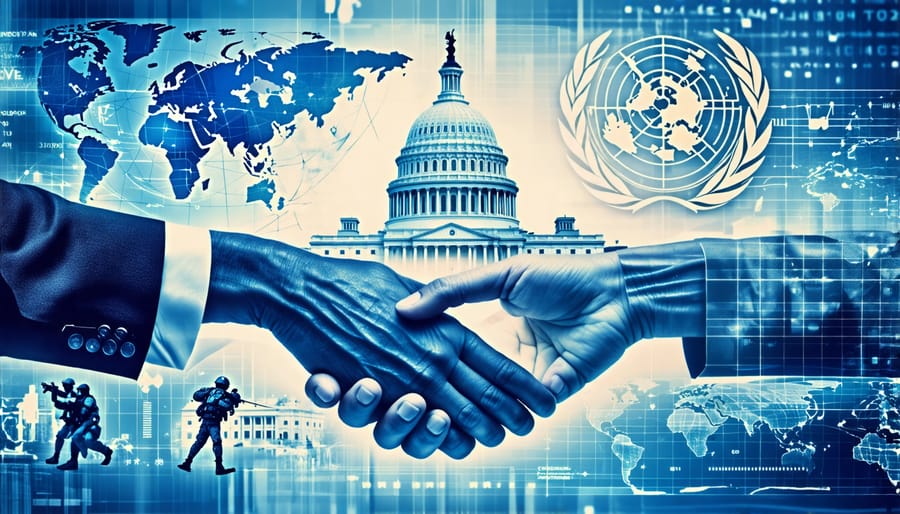The United States plays a pivotal role in shaping and supporting the United Nations, the world’s preeminent international organization. As a founding member and permanent member of the UN Security Council, the U.S. wields significant influence over the UN’s mission, operations, and priorities. The U.S. is the single largest financial contributor to the UN system, providing nearly $11 billion in assessed and voluntary contributions in 2021. These funds support a wide range of UN programs and agencies, from peacekeeping missions to humanitarian relief efforts.
Beyond financial support, the U.S. also provides critical diplomatic leadership, often setting the agenda on key issues such as human rights, nuclear non-proliferation, and counterterrorism. U.S. involvement is essential for mobilizing international action and resources to address global challenges. However, the relationship between the U.S. and UN has not always been smooth, with periodic tensions arising from differences in policy and approach.
As the UN celebrates its 75th anniversary amidst a rapidly changing world, understanding the complex and consequential relationship between the U.S. and UN is more important than ever. This article will provide an in-depth examination of the many ways the U.S. shapes and sustains this indispensable global institution.
Financial Lifeblood
The United States is the largest financial contributor to the United Nations, providing crucial support for its regular budget and peacekeeping operations. In 2021, the U.S. was assessed to contribute 22% of the U.N.’s regular budget, amounting to approximately $674 million. This funding is vital for the organization’s core functions, such as maintaining the General Assembly, Security Council, and various U.N. agencies and programs.
Moreover, the U.S. is the top provider of assessed contributions to U.N. peacekeeping, responsible for nearly 28% of the total budget. In the 2020-2021 fiscal year, the U.S. contributed over $1.65 billion to support peacekeeping missions worldwide. These funds enable the U.N. to deploy over 80,000 military, police, and civilian personnel in 12 operations, working to maintain stability, protect civilians, and promote peace in conflict-affected regions.
The U.S. also provides substantial voluntary contributions to U.N. agencies and programs, such as UNICEF, the World Food Programme, and the U.N. Development Programme. In 2020, the U.S. gave over $10 billion in voluntary funding, demonstrating its commitment to addressing global challenges like poverty, health, and humanitarian crises.
As the U.N.’s financial lifeblood, the U.S. plays a pivotal role in ensuring the organization has the resources necessary to fulfill its mandate of maintaining international peace and security, promoting sustainable development, and advancing human rights. Through its significant financial contributions, the U.S. demonstrates its leadership and dedication to strengthening the international system and addressing the world’s most pressing issues.

Peacekeeping Power
The United States has been a major contributor to United Nations peacekeeping operations since their inception in 1948. As a permanent member of the U.N. Security Council, the U.S. plays a crucial role in authorizing and shaping these missions. Financially, the United States is the largest single provider of assessed contributions to U.N. peacekeeping, covering approximately 28% of the total budget. In the 2020-2021 fiscal year alone, the U.S. contributed over $1.65 billion to support ongoing operations.
Beyond funding, the United States also provides significant support through training and capacity-building programs. The Global Peace Operations Initiative (GPOI), a U.S.-led effort established in 2004, has trained over 197,000 peacekeepers from 38 countries. This program focuses on enhancing the capabilities of troop-contributing countries, particularly in Africa, to participate effectively in U.N. and regional peacekeeping missions.
In terms of personnel, while the U.S. does not typically contribute large numbers of troops to U.N. peacekeeping operations, it does provide critical specialized support. American military observers, police officers, and civilian experts are deployed to various missions, offering expertise in areas such as logistics, intelligence, and strategic planning. The United States also maintains a rapid response force capable of quickly deploying to support U.N. missions in emergencies.
Furthermore, the U.S. plays a vital role in shaping the mandates and objectives of U.N. peacekeeping operations through its influence on the Security Council. American diplomats work closely with other Council members to craft resolutions that guide the scope and activities of each mission. This involvement allows the United States to ensure that peacekeeping efforts align with its foreign policy goals and values, such as the protection of civilians and the promotion of stable, democratic societies.

Humanitarian Aid Heavyweight
The United States is a leading contributor to United Nations agencies focused on providing critical humanitarian aid worldwide. The U.S. is the largest single donor to the United Nations High Commissioner for Refugees (UNHCR), providing over $1.7 billion in 2020 to support refugees, asylum seekers, and internally displaced persons. This funding enables UNHCR to provide shelter, healthcare, education, and protection to millions of vulnerable people fleeing conflict and persecution.
The U.S. is also the top contributor to the World Food Programme (WFP), donating over $3.6 billion in 2020 to combat global hunger and malnutrition. This support is vital in addressing acute food insecurity, which has been exacerbated by the COVID-19 pandemic, climate change, and armed conflicts. Through its partnership with WFP, the U.S. helps deliver life-saving food assistance to over 100 million people in more than 80 countries each year.
In the realm of global health, the U.S. is a major supporter of the World Health Organization (WHO), contributing over $400 million annually to advance public health initiatives and respond to health emergencies. U.S. funding helps WHO combat infectious diseases, promote maternal and child health, and strengthen health systems in developing countries. Additionally, the U.S. is a key donor to UNICEF, providing over $800 million in 2020 to support child survival, development, and protection programs in more than 190 countries.
When disasters strike, the U.S. is often among the first to respond through its support of the United Nations Office for the Coordination of Humanitarian Affairs (OCHA). U.S. contributions to OCHA, totaling over $300 million in 2020, enable rapid and effective humanitarian response to emergencies worldwide, from natural disasters to complex crises. By partnering with U.N. agencies, the U.S. demonstrates its commitment to alleviating suffering, promoting stability, and fostering global cooperation in times of need.

Shaping Sustainable Development
The United States plays a pivotal role in supporting the United Nations’ Sustainable Development Goals (SDGs), a set of 17 ambitious targets aimed at ending poverty, protecting the planet, and ensuring prosperity for all by 2030. As the largest financial contributor to the U.N., the U.S. provides critical funding for programs and initiatives that advance the SDGs, such as promoting access to clean water, improving maternal health, and combating climate change.
One area where the U.S. has made significant contributions is in the development and deployment of low-carbon energy technologies. Through partnerships with U.N. agencies and other international organizations, the U.S. has helped to accelerate the transition to clean energy in developing countries, providing technical assistance, capacity building, and financial support for projects that harness renewable energy sources like solar, wind, and hydropower.
For example, the U.S. Agency for International Development (USAID) has partnered with the U.N. Development Programme (UNDP) to launch the Power Africa initiative, which aims to double access to electricity in sub-Saharan Africa by 2030. By leveraging private sector investment and expertise, this innovative partnership has already connected millions of households to reliable, affordable, and sustainable energy sources.
The U.S. also supports the U.N.’s efforts to promote sustainable agriculture and food security, another key SDG. Through the Feed the Future initiative, the U.S. has invested billions of dollars in agricultural research, development, and extension services in developing countries, helping to boost crop yields, improve nutrition, and increase the incomes of smallholder farmers.
As the world continues to grapple with the challenges of sustainable development, the U.S. remains committed to working with the U.N. and other partners to build a more just, prosperous, and sustainable future for all.
Advancing Human Rights
The United States has consistently demonstrated its commitment to advancing human rights through its leadership and engagement in the United Nations Human Rights Council. As a member of the council, the U.S. has advocated for the protection of fundamental freedoms and the promotion of human dignity worldwide. By actively participating in the council’s sessions and resolutions, the U.S. has helped shape the U.N.’s human rights agenda and has called attention to pressing issues such as freedom of expression, women’s rights, and the rights of marginalized communities.
In addition to its role on the Human Rights Council, the United States has been a strong supporter of various U.N. human rights mechanisms. This includes providing financial and technical assistance to the Office of the High Commissioner for Human Rights, which plays a crucial role in monitoring and reporting on human rights situations around the globe. The U.S. has also backed initiatives to investigate and hold accountable those responsible for human rights abuses, such as the Commission of Inquiry on Syria and the fact-finding mission in Myanmar.
Moreover, the United States has championed the inclusion of human rights considerations in other areas of U.N. work, such as peacekeeping operations and sustainable development efforts. By integrating human rights principles into these broader U.N. activities, the U.S. has helped ensure that the organization’s efforts are grounded in respect for human dignity and the rule of law.
Conclusion
The United States plays a pivotal role in supporting the United Nations and its mission to promote global peace, development, and human rights. As the largest financial contributor, the U.S. provides critical funding for UN operations, humanitarian aid, and development programs. American diplomats and experts bring invaluable expertise to UN bodies, shaping policies and decisions on key global issues. The U.S. is also a major contributor to UN peacekeeping missions, helping to maintain stability in conflict zones worldwide. Through its support for UN agencies like UNICEF, the World Food Programme, and the UN Development Programme, the U.S. helps deliver life-saving aid and promote sustainable development in communities across the globe. The U.S. commitment to human rights is reflected in its engagement with the UN Human Rights Council and other UN mechanisms to hold countries accountable and protect the rights of vulnerable populations. While the relationship between the U.S. and the UN has faced challenges at times, the extensive and multifaceted contributions of the United States remain essential to the UN’s ability to address the world’s most pressing challenges and advance its noble mission.

